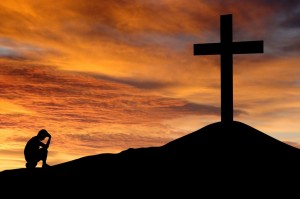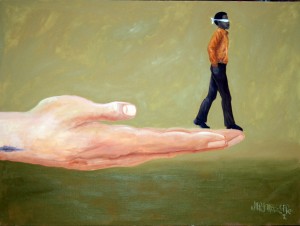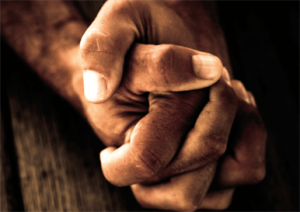Talking to an unorthodox chaplain at the University of Victoria (UVic) in British Columbia recently, he stated his faith in that there is a higher intelligence operating in and on human consciousness. I’m not so sure, at least not to any discernible degree at present.
 Without implying something supernatural or mystical, the numinous is a given to my mind and heart. There’s been an experiencing of transcendence all my adult life, ever since I broke with my Catholic upbringing at 17.
Without implying something supernatural or mystical, the numinous is a given to my mind and heart. There’s been an experiencing of transcendence all my adult life, ever since I broke with my Catholic upbringing at 17.
Indeed, I’m sure the sacredness or otherness would never have come if I hadn’t come downstairs one Sunday morning as a senior, and announced to my dumbstruck parents that I wasn’t going to Mass that day or ever again.
At that time, missing Mass on Sunday was still a mortal sin in the Catholic Church, which, for those more fortunate souls less versed in its terminology, meant hellfire forever. But an incident when I was in the 8th grade made me question the whole business of religion, and by the time I was a senior in high school, I’d become an apostate.
In middle school all our teachers were nuns, and while I’d had good experiences with the mostly young women of faith and passion (one of whom was inexplicably beautiful to we boys, even in her hair-covering, full-length black and white habit), there was another nun whose very name inspired dread and terror. Sister Clementia. She was anything but a model of mercy, leniency and forgiveness for the unlucky kids in her class.
One morning, as was the custom in those dinosaur days, I served Mass before class with a boy I barely knew, a flirt well ahead of his years with the girls. During Communion, the most consecrated moment in the Mass, as I stood on one side of the priest serving the boys, he stood on the other serving girls as they marched up to receive the host.
Unbeknownst to me, the other lad was making goo-goo eyes at the girls as they stood in his line. Later that morning, as I walked down the hall with a friend who looked something like the infidel altar boy, Sister Clementia came barreling toward us. Without slowing a step, she began beating my friend about the face, yelling something about Mass that morning.
By the time I understood what was happening, and why, my tough little friend’s face had been reduced to a simpering red pulp. When I finally got through to her that this wasn’t the boy I served Mass with that morning, Sister Clementia just turned on her heels and walked away, without a word.
On such moments, hundreds of years of religious conditioning turn. It took me four more years of observation, investigation and reflection, revealing the dark underside of Catholic history (such as the Inquisition), but I mark that as the moment I ceased being a Catholic.
investigation and reflection, revealing the dark underside of Catholic history (such as the Inquisition), but I mark that as the moment I ceased being a Catholic.
Even though I was still a teen, I came to a basic realization that eludes believers and atheists alike: Being religious has little or nothing to do with religions. Indeed, I felt then, and still feel today that religions often preclude the very thing—religiosity, or in today’s parlance, spirituality—that they purport to support.
Less than a year after I announced my departure from the fold, I had a ‘mystical experience’ that changed the course of my life. It was mystical only because it was unexplained and inexplicable to me at the time. But being also of philosophical bent (you can take that either way), I had to rationally understand what happened.
It took many years, but it eventually became philosophically clear. And thankfully, the phenomenon that so explosively erupted in my teens still occurs on almost a daily basis, with greater depth if less intensity.
At the time, I noticed that there was always an observer separate from what it was observing, even within oneself introspectively. Over a period of weeks, I held the question: What is this observer?
As happens when you ask a question from the depths of your being, it subconsciously penetrates and percolates in your brain. One day, my case my parents’ backyard, there was an embodied, in-the-body insight.
 The observer, I saw at a gut-level, is basically a trick and habit of thought, a very old and deep illusion, but an illusion nonetheless. The observer is essentially thought separating itself from itself, generating a mechanism called ‘me,’ which is just a bundle of traits, experiences and images. In actuality, thought is a single movement.
The observer, I saw at a gut-level, is basically a trick and habit of thought, a very old and deep illusion, but an illusion nonetheless. The observer is essentially thought separating itself from itself, generating a mechanism called ‘me,’ which is just a bundle of traits, experiences and images. In actuality, thought is a single movement.
There was a robin on the grass, and the vibrancy, color and beauty of the living creature exploded like a nuclear detonation within me. I realized I’d never actually seen anything before in my life. And I also realized that I was part of the entire panoply of life that the robin represented in microcosm. I also emotionally saw that man’s separativeness is the impediment to perception, insight and harmony.
The personal is the problem. So my intent is not just to give a personal account of religious un-conversion and subsequent mystical experiencing, but to perhaps help the reader searching for spiritual meaning in a time of institutional collapse and worldwide endarkenment.
One aspect of the emotionally experienced insight that day has remained constant: The source of man’s ecological destructiveness is man’s separative consciousness. That means the remedy cannot be found in political and economic, or even scientific and technological domains.
In previous ages, people did not doubt that there was a greater intelligence that cared about the fate of humankind; in our age, even many believers doubt it. To a point, that’s a good thing, since doubt is essential not only to advancing science, but to growing in insight.
The danger is that in working for one’s own transformation, without caring about the parlous condition of the world and collective consciousness, as so many people in the West now are, it can and often does become merely an exercise in self-absorption.
Therefore, besides awakening an awareness of the numinous, faith in humanity and an intelligence beyond humanity that cares about the fate of humanity seems to be essential to the transformation and transmutation of the individual and the species.
For this religious philosopher at least, that faith is being sorely tested during this, the newly named Anthropocene Age—the sum of all the dark ages of man.
Martin LeFevre

